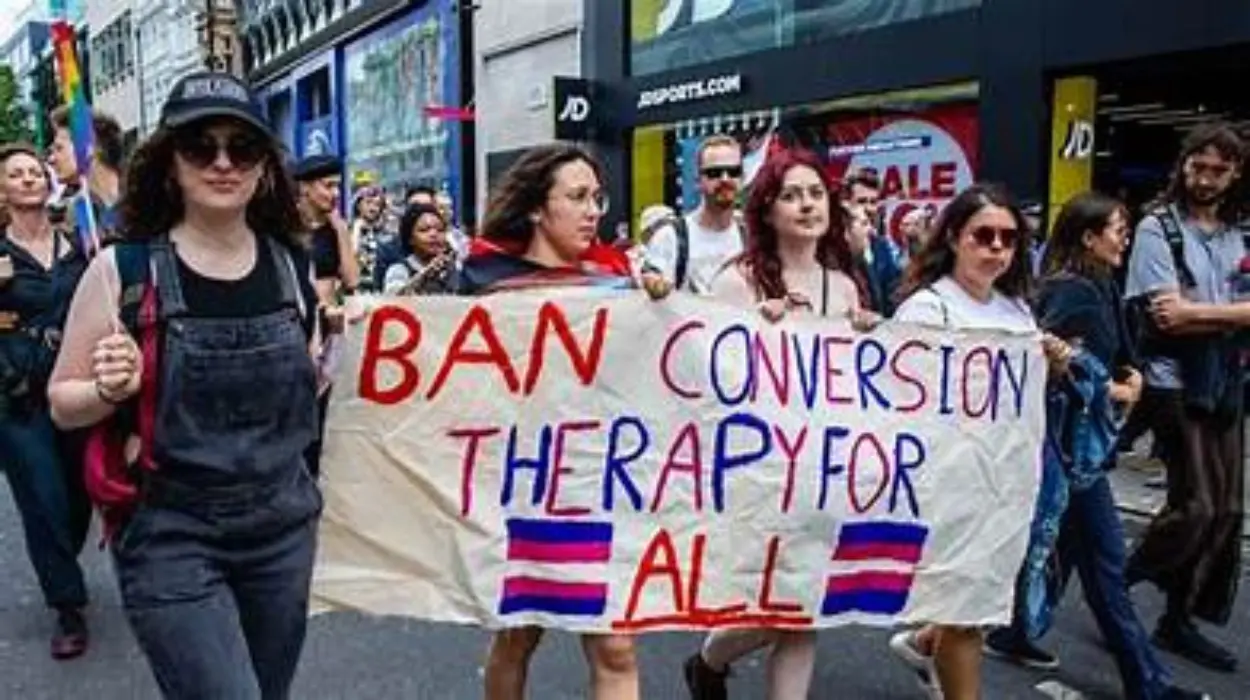On May 17, 2025, the International Day Against Homophobia, more than one million Europeans united to call for a binding European Union ban on conversion therapy targeting LGBTQ+ individuals. This historic milestone, achieved through a European Citizens’ Initiative (ECI), compels the European Commission to formally respond and consider legislative action to outlaw these discredited and harmful practices across all 27 EU member states.
What Is Conversion Therapy and Why Ban It?
Conversion therapy refers to a range of pseudoscientific and abusive practices aimed at changing or suppressing a person’s sexual orientation, gender identity, or gender expression to conform to heterosexual and cisgender norms. These methods include exorcisms, spiritual interventions, electroshock therapy, hormonal treatments, and “reparative” counseling.
Despite the World Health Organization’s declassification of homosexuality as a mental illness in 1990 and transgender identities in 2019, conversion therapies persist in parts of Europe, often promoted by religious groups or unregulated practitioners. Victims-frequently young people-suffer long-term psychological trauma, depression, anxiety, and increased suicide risk.
According to the European Parliament Research Service, approximately 2% of LGBTQ+ Europeans have undergone conversion therapy, while 5% have been offered such treatments. The prevalence is notably higher among transgender individuals and youth.
The European Citizens’ Initiative: A Democratic Milestone
The ECI titled “Ban on conversion practices in the European Union” was launched on May 17, 2024, by the NGO Against Conversion Therapy (ACT), founded in 2023 to coordinate efforts against these practices across Europe. The initiative called on the European Commission to propose a binding legal ban on conversion therapy and to establish minimum standards for victim protection.
To succeed, the ECI required at least one million verified signatures from citizens in at least seven EU countries within a year. By May 16, 2025, the initiative surpassed this threshold with approximately 1.2 million signatures collected across all member states, triggering the Commission’s obligation to respond publicly and consider legislative proposals.
Current Legal Landscape: Patchwork of Bans
Only eight EU countries-Belgium, Cyprus, France, Germany, Greece, Malta, Portugal, and Spain-have fully banned conversion therapy at the national level. In some regions, bans exist only locally, while several member states, including Poland and Hungary, have no prohibitions and in some cases tacitly allow or promote such practices.
This fragmented legal framework leaves many LGBTQ+ people vulnerable to abuse and highlights the urgent need for a unified EU-wide ban to ensure equal protection across the bloc.
Political and Public Reactions
Strong Calls from EU Politicians
Manon Aubry, co-president of The Left in the European Parliament, condemned the absence of EU-wide legislation as “nothing short of disgraceful.” She stated, “Being queer is not an illness. Conversion therapies are psychological and physical violence, deeply dehumanizing acts. The EU can no longer turn a blind eye.”
Italian MEP Carolina Morace echoed the sentiment, calling the initiative “urgent and absolutely necessary,” emphasizing that conversion therapies violate fundamental human rights and dignity.
Support from Cultural Figures and Activists
Belgian singer Angèle, who publicly came out in 2020, voiced strong support for the ban, urging Europeans to sign the petition to end these “cruel” practices. Former French Prime Minister Gabriel Attal also publicly backed the initiative, highlighting its significance.
European Commission’s Position
Hadja Lahbib, European Commissioner for Equality, described conversion therapies as “shameful practices that sometimes even lead to suicides.” European Commission President Ursula von der Leyen, in her 2024 State of the Union address, committed to pursuing an EU-wide ban as part of a broader LGBTQI equality strategy expected after 2025.
What Happens Next?
With the ECI’s success, the European Commission must now formally respond by September 2025, explaining whether it will propose new legislation or take other actions. While the Commission is not legally bound to enact a ban, the political momentum and public pressure make legislative progress increasingly likely.
Any EU-wide ban would require approval by the European Parliament and member states, a process that can be complex and time-consuming. However, growing awareness of conversion therapy’s harms and the unified call from over one million citizens mark a pivotal moment in advancing LGBTQ+ rights in Europe.
Why an EU-Wide Ban Matters
Conversion therapy is widely condemned by health organizations, including the United Nations and the World Health Organization, as a form of torture or cruel, inhuman, and degrading treatment.
An EU-wide ban would:
- Ensure consistent protection for LGBTQ+ individuals across all member states.
- Close legal loopholes that allow conversion practices to continue in some countries.
- Establish minimum standards for victim support and legal recourse.
- Reinforce the EU’s commitment to human rights, equality, and non-discrimination.
International Day Against Homophobia: Amplifying the Message
The petition’s milestone coincided with the International Day Against Homophobia, Biphobia, and Transphobia (IDAHOBIT), observed annually on May 17 to commemorate the WHO’s removal of homosexuality from the list of mental illnesses in 1990.
In 2025, over 130 countries worldwide held events, marches, and awareness campaigns to combat discrimination and violence against LGBTQ+ people. The EU-wide call to ban conversion therapy added significant weight to the day’s global message of equality and dignity.
The collection of over one million signatures demanding an EU-wide ban on conversion therapy represents a historic public mandate to end these abusive practices. It reflects a broad coalition of citizens, politicians, and cultural figures united in defending LGBTQ+ rights and human dignity.
As Europe stands at this crossroads, the European Commission’s forthcoming response will be closely watched as a litmus test of the EU’s commitment to protecting its most vulnerable citizens and upholding fundamental rights in the years ahead.









